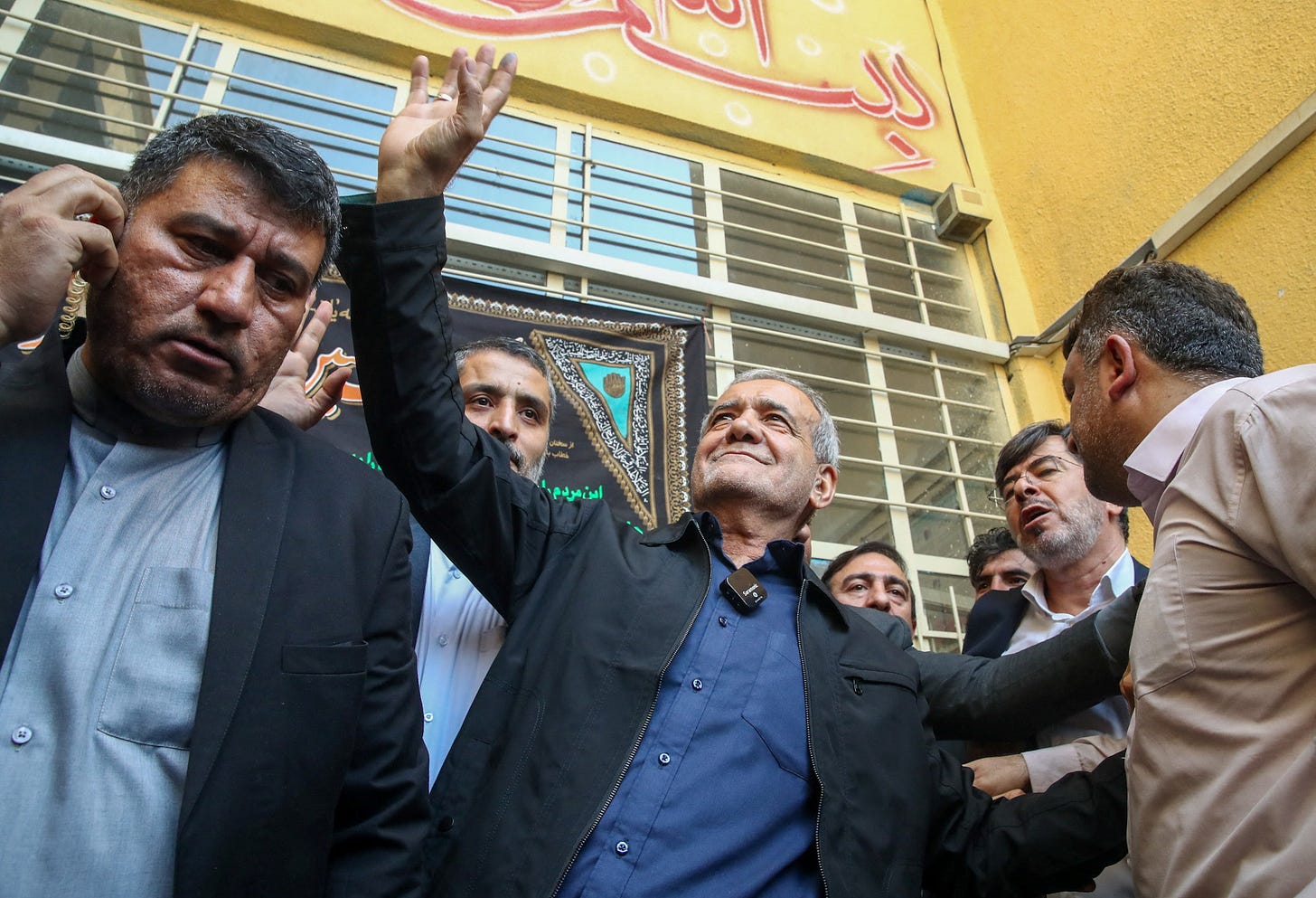Iranian President Vows To Neutralize West’s Sanctions
Plans to Develop Strong Ties With Neighbours

Iran’s newly elected president, Masoud Pezeshkian, announced that his government will prioritize neutralizing the impact of all illegal sanctions imposed on the country. The announcement was made during the inaugural ceremony of the country’s new foreign minister, Seyyed Abbas Araghchi, on Tuesday 27 August.
The president said he believes that the best way to mitigate the impact of sanctions is to develop strong ties with neighbouring countries. “Connections and development of relations [with neighbours] make sanctions ineffective,” he was quoted as saying by the Islamic Student News Agency (ISNA).
Pezeshkian was elected president last month following the death of then-President Ebrahim Raisi, then-foreign minister Amir Hossein Abdulahian, and six others in a helicopter crash in May.
Araghchi, who was previously the country’s nuclear negotiator, has also claimed that the first goal of the Pezeshkian-led government is to “neutralize the sanctions and their impact on the people” of Iran. He emphasized that the administration will first try to strengthen relations with neighbouring countries, then prioritize building stronger relations with countries in Africa and East Asia. He noted that Iran has special respect for countries that stood with it even in the most difficult times, likely referring to China and Russia.
The policy pronouncements of Iran’s new government counter the speculation about the Pezeshkian administration’s possible turn to the West and a softer approach to the nuclear deal.
While meeting with the newly formed cabinet for the first time, Supreme Leader Ayatollah Ali Khamenei asked the government to address the issues of the people, as that is the best way to “defeat the oppressive United States and European Union sanctions.”
Hundreds of unilateral punitive measures have been imposed by the US and its European allies on Iran since May 2018. These illegal sanctions have gravely impacted major sectors, such as the export of oil and gas, crippling the country’s overall economy.
The sanctions were imposed after the Trump administration unilaterally withdrew from a treaty called the Joint Comprehensive Plan of Action (JCPOA), signed in 2015 by the US under Barack Obama, Iran, and five other countries—the United Kingdom, France, Germany, China, and Russia—along with the EU.
The JCPOA, also known as the Iran nuclear deal, provided for restrictions on Iran’s nuclear program in return for relief from international sanctions imposed almost a decade earlier on suspicions that Iran was trying to develop nuclear weapons.
Iran has always denied that it has any plans to develop nuclear weapons and insists that its nuclear program is peaceful. However, the US and its European allies, additionally influenced by Israeli pressure, continue to accuse Iran of the opposite. Upon withdrawing from the JCPOA, the Trump administration claimed the deal was insufficient and weak. They implied that they wanted to renegotiate the deal, but Iran resisted that possibility.
Despite promising to return to the deal during his election campaign, the Biden administration has failed to do so. On the contrary, it has imposed numerous new sanctions on Iran since taking power.
Talking about his government’s approach to foreign policy, Araghchi said that there will be an attempt to “manage tensions” with the US and to rebuild relations with the EU if they abandon their hostile approach toward Iran and lift the sanctions. However, “China, Russia, Africa, Latin America, and East Asia are the priority regions in our foreign policy,” Araghchi said.
The foreign minister also emphasized that Iran is ready to revive the JCPOA “through earnest, focused, and time-bound negotiations” within the fundamental principles already defined.
All the members of Pezeshkian’s cabinet were approved by the Iranian parliament last week. The 19-member cabinet includes leaders from across the ideological spectrum. Javad Zarif, former foreign minister during Hassan Rouhani’s presidency between 2013 and 2021, was also introduced into Pezeshkian’s cabinet as vice president for strategic affairs.



